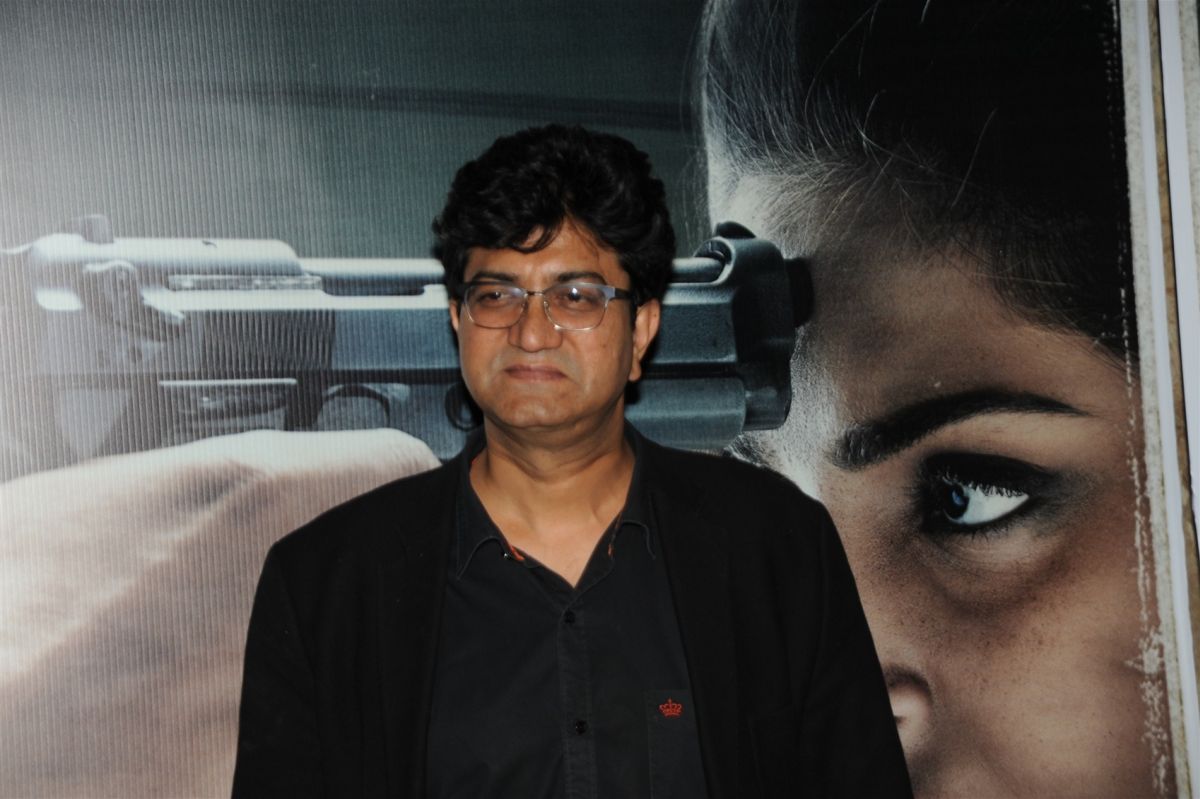After 120 cuts, Diljit Dosanjh’s ‘Punjab 95’ gets postponed
To the dismay of Diljit Dosanjh fans, his highly anticipated biopic, ‘Punjab 95’ faces postponement following 120 cuts.
Every true artist recognizes that life trumps art, and is therefore sensitive to both oneself as well as the faintest murmurs in society- Prasoon Joshi.

Lyricist & Chairperson CBFC Prasoon Joshi during the launch of song `Aankhen Milayeinge Daar Se` from film Neerja in Mumbai on Feb 3, 2016. (Photo: IANS)
In the long run, every true artist recognises that life trumps art, and is therefore sensitive to both oneself as well as the faintest murmurs in society, says lyricist and chairperson of the Central Board of Film Certification (CBFC) Prasoon Joshi.
“Freedom is not a blank cheque; it comes with a fair barter of responsibility… He or she (artist) knows that they are not more important than humanity. Inks would dry and brushes would stiffen in the face of one genuine teardrop or a mute cry of pain,” Joshi, who was awarded Padma Shri in 2015, remarks in his new book “Thinking Aloud: Reflections on Emerging India”.
Advertisement
In the book published by Rupa, he says that he shares an old, intimate relationship with thoughts, words and ideas.
Advertisement
“Art and creativity is what I stand by and always will. I believe that the freedom to create and express is linked to the very grain of human existence,” he says.
Joshi, who was castigated by fringe groups for giving the green light for the release of Padmaavat, maintains that the emergence of fringe groups is not solely because of the “politics of power”.
“Infuriated and saddened as I was at the violent protest against this movie, it’s dishonest to not to see the complete picture,” he says, before noting that the entire world is going through a period of change when technology has linked the world in an unprecedented manner.
He says that there are multiple platforms available for different voices.
“Those who see this as a problem are essentially the ones who believed that these platforms were exclusive, and so, kept these tools and platforms under control, mastering the codes and lexicon, and forgetting that there are others in the society, whose point of view, the moniker of fringe or lumpen elements is often applied to contrarian voices,” he adds in the 205-page book.
Joshi, a recipient of two National Awards and three Filmfare Awards, however, clarifies that his context is about voicing one’s concerns, and “not that of resorting to violence in any form”.
“But to consider oneself as extraordinary just because one practises an art form and others as deficient in both sense and sensibility, and to assert one’s own voice as civilized and decry every other as uncivilized, is condescension,” he maintains.
Sharing his views on commercial art, Joshi says that when art is packaged and sold as a commercial product, “it is not pure art any longer”.
“As far as entertainment products are concerned, in an industry with a balance sheet, art is more commercial. We are not talking about self-expression alone here; we are talking of a carefully crafted product for the consumer,” he adds.
Joshi also contends in the book that barring a few films that have raised serious questions and issues, “Bollywood has always been a spectacle, a grand tamasha” as the staple of the film industry is entertainment. He, however, acknowledges that there are some films that are more than just entertainment, and lists movies such as Mother India, Mazdoor, Pyaasa and the more recent Rang De Basanti.
“But films do not set out to be therapeutic. At the end of the day, they are just entertainment and only some amongst them are more than that. The only qualm is that the latter are too few and far between,” he says.
Advertisement